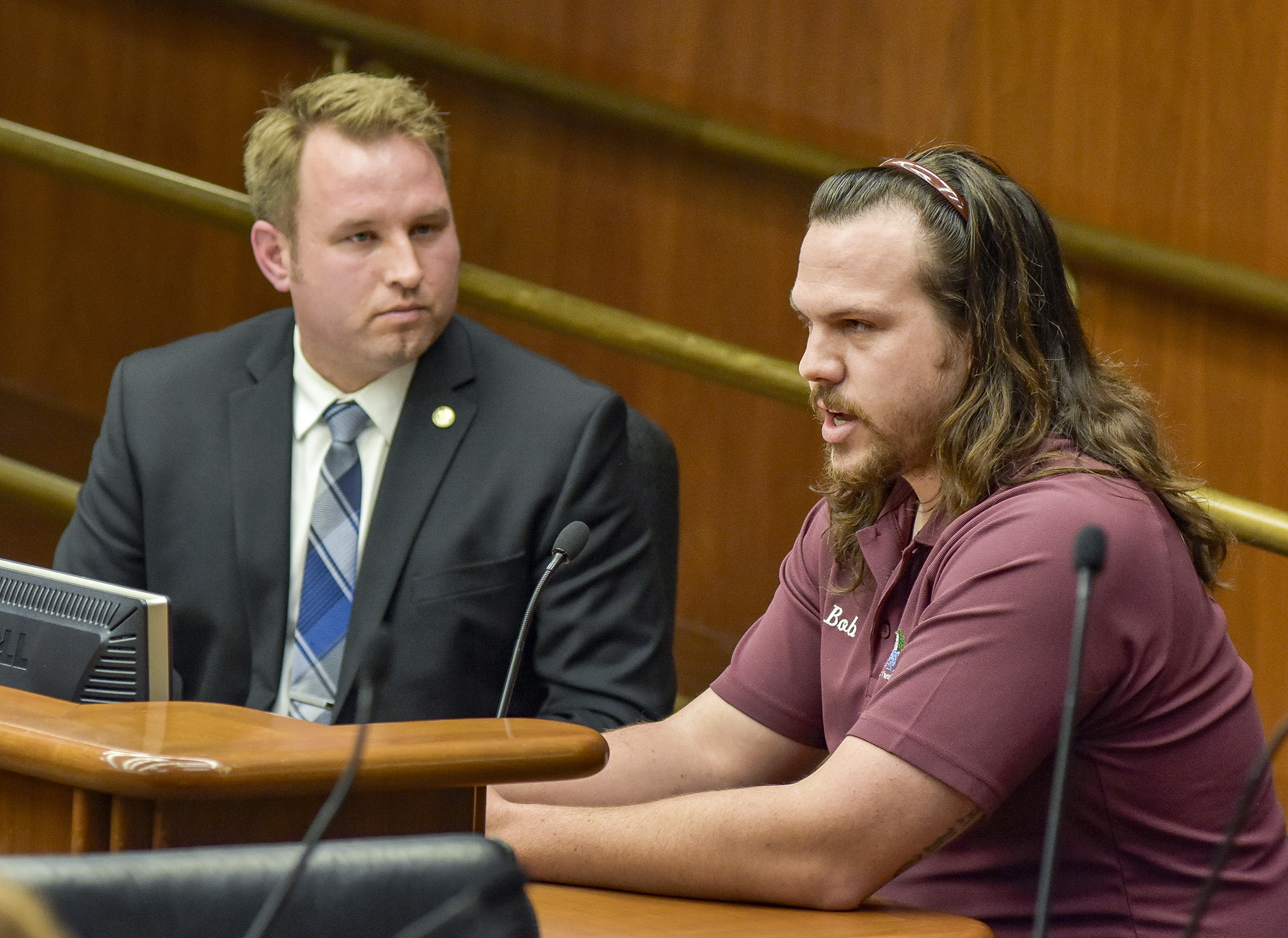Legislators look to wane organized waste collection agreements in five-year ban

There was lots of trash talk today in one House committee.
A bill approved Wednesday would put a half-decade halt on Minnesota communities entering into new “organized collection” agreements when dealing with waste management.
HF3708, sponsored by Rep. Chad Anderson (R-Bloomington), would put a moratorium on any city, county, or town from beginning the process of providing organized solid waste collection services over the next five years.
An “organized collection” agreement is one in which communities assess the waste management needs for all residents, and implement a universal service to satisfy all. Oftentimes it leads to a couple of providers servicing an entire area, rather than open-market competition dictating who serves where. The bill would be retroactive to Jan. 1, 2016, applying to local governments that have not already started the process to organize collections. It would not undue organized collection agreements that have already been established. The prohibition would be lifted on Jan. 1, 2021.
Approved by the House Government Operations and Elections Policy Committee on an 8-6 roll-call vote, it now moves to the House Rules and Legislative Administration Committee. A companion, SF3377, sponsored by Sen. Dave Thompson (R-Lakeville), awaits action by the Senate Environment and Energy Committee.
Anderson’s inspiration for the bill came via concerns expressed to him by his constituents. The City of Bloomington enacted an organized collection agreement last January.
“This moratorium will give us time to think about possible solutions,” Anderson said.
The bill purportedly promotes competition among providers, keeping customers in the driver’s seat and responsible for their own waste management collections.
However, concerns came over whether the bill would eliminate elements of local control.
Opponents argue that local governments would still be mandated to clean up waste under existing Minnesota statutes; however, they would lose a valuable tool to control how that would be accomplished.
“This moratorium significantly limits the options of local governments to deal with solid waste management issues in the future; this is neither necessary, nor a good policy move,” said Craig Johnson, intergovernmental relations representative for the League of Minnesota Cities. “We do not feel the process at this point is so broken that it should be suspended for five years.”
Related Articles
Search Session Daily
Advanced Search OptionsPriority Dailies
Ways and Means Committee OKs proposed $512 million supplemental budget on party-line vote
By Mike Cook Meeting more needs or fiscal irresponsibility is one way to sum up the differences among the two parties on a supplemental spending package a year after a $72 billion state budg...
Meeting more needs or fiscal irresponsibility is one way to sum up the differences among the two parties on a supplemental spending package a year after a $72 billion state budg...
Minnesota’s projected budget surplus balloons to $3.7 billion, but fiscal pressure still looms
By Rob Hubbard Just as Minnesota has experienced a warmer winter than usual, so has the state’s budget outlook warmed over the past few months.
On Thursday, Minnesota Management and Budget...
Just as Minnesota has experienced a warmer winter than usual, so has the state’s budget outlook warmed over the past few months.
On Thursday, Minnesota Management and Budget...